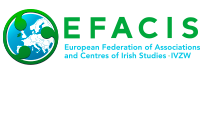Pluralizing perspectives?
Truth and Reconciliation in societies emerging from conflict and/or violence
One-day workshop - October 4th 2018, Salle du conseil, UPPA (Pau)
The Truth and Reconciliation Commission of South Africa (1995-2003) is often presented as a model to be pursued in societies emerging from conflict and/or violence. It was replicated in places like Canada (2008-2015) in order to deal with the trauma, violence and injustice undergone by Aboriginal populations in the Residential School system and also gave way to restorative initiatives in several other countries.
Despite the indisputable importance of these missions, their definition and translation into a legal framework may be problematic in some places, as in Northern Ireland, where the negotiations on how to deal with the past have been highly divisive for the past twenty years since the signing of the Good Friday Agreement in 1998. Truth and Reconciliation initiatives have nonetheless emerged, albeit within a relatively informal framework. In the absence of a regionally accepted narrative, multiple, pluralized understandings of the terms ‘truth’ and ‘reconciliation’ have emerged (Hamber and Kelly 2005). Even though the lack of an authoritative legal framework is certainly debilitating, the possibility of local ownership of truth and reconciliation is an interesting element which must be underlined, and so is the diversity of reconciliation practices.
The organisers of this workshop therefore wish to consider the plurality of understandings and practices of the two concepts that have been developed in societies emerging from conflict and/or violence.
Among many possible topics, prospective speakers may analyse the concept and practice of truth telling. They may question whether truth has been a facilitating factor to achieve reconciliation or an impediment. Speakers may also analyse representations of reconciliation in works of fiction and how these may be considered as a factor of reconciliation. Another possible perspective may be to examine the various meanings assigned to the word ‘reconciliation’ in the different communities where such initiatives have been implemented. How may conflicting interests or views be reconciled? One may also wonder about the influence of historical factors, and assess how the accounts of those seeking reconciliation have evolved over time. An analysis of past initiatives will also be relevant. Finally, a distinction between nationally and locally devised initiatives may be made to better assess the policies implemented, their sustainability, and their impact on the local communities.
This is a cross-disciplinary workshop and submissions by researchers in Humanities or Political and Social Sciences will be welcome. There will be no restrictions as to the geographical area covered.
Proposals may focus on but are not restricted to the following topics:
- Multiple meanings and practices of ‘reconciliation’
- Reconciliation initiatives within formal Truth and Reconciliation frameworks
- Reconciliation initiatives in the absence of formal frameworks
- Locally devised initiatives
- Cross-border reconciliation ; transnational reconciliation
- Historical study of pre-existing reconciliation initiatives
- The importance of testimonies in the process of reconciliation and reconstruction;
- The archiving process of the testimonies and the questions raised by this process;
- Multiple meanings of ‘truth’ / of ‘telling the truth’
- Different ways of ‘telling the truth’ and their impact ;
- The function of storytelling (fiction, autobiographical fiction, memoirs) under various forms (texts, films, audio-visual material, graphic novels, music, songs, etc.) in reconciling or bridging cultures;
- Creativity as a means to shift from victimhood to agency.
Contributions will be either in French or in English.
The deadline for proposals is June 22 2018. Proposals (title and abstract 200 to 250 words) may be submitted to Joana Etchart and Franck Miroux
Reference list (for guidance only)
Cassin Barbara, Olivier Cayla, et Philippe Joseph Salazar (éd.). Vérité, réconciliation, réparation. Paris: Le Seuil, 2004.
Commission de vérité et réconciliation. Honorer la vérité, réconcilier pour l'avenir, sommaire du rapport final de la Commission de vérité et réconciliation du Canada. Honouring the Truth, Reconciling for the Future: Summary of the Final Report of the Truth and Reconciliation Commission of Canada. Toronto: Lorimer, 2015.
Dewar, Jonathan. From Profound Silences to Ethical Practices: Aboriginal Writing and Reconciliation. New York: OUP, 2016.
Hamber, Brandon, et Grainne Kelly. A Place for Reconciliation?: Conflict and Locality in Northern Ireland. Belfast: Democratic Dialogue, 2005
Humphrey, Michael. The Politics of Atrocity and Reconciliation: from Terror to Trauma. London: Routledge, 2002.
Keller Hirsch, Alexander. Theorizing Post-Conflict Reconciliation: Agonism, Restitution and Repair. New York: Routledge, 2012.
Schaap, Andrew. Political Reconciliation. London: Routledge, 2005.
 Efacis
Efacis 


